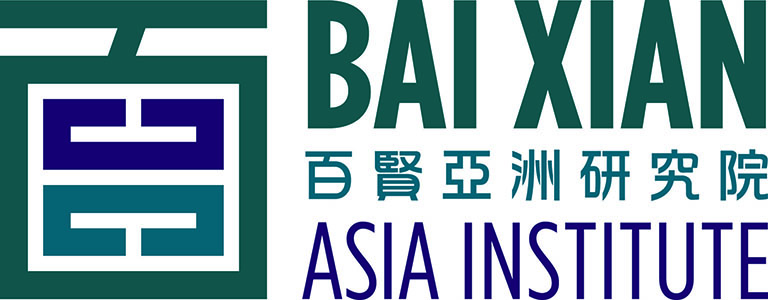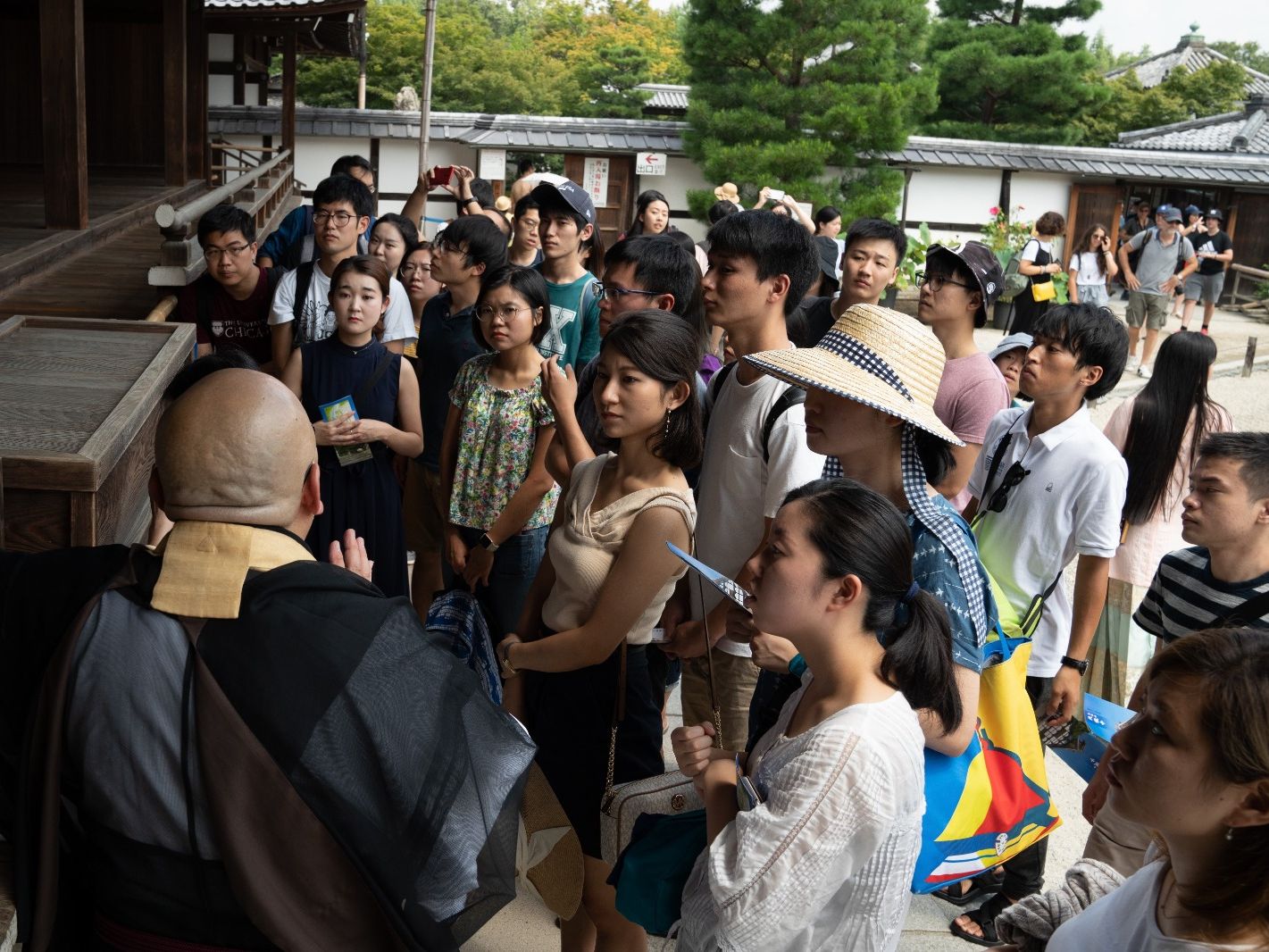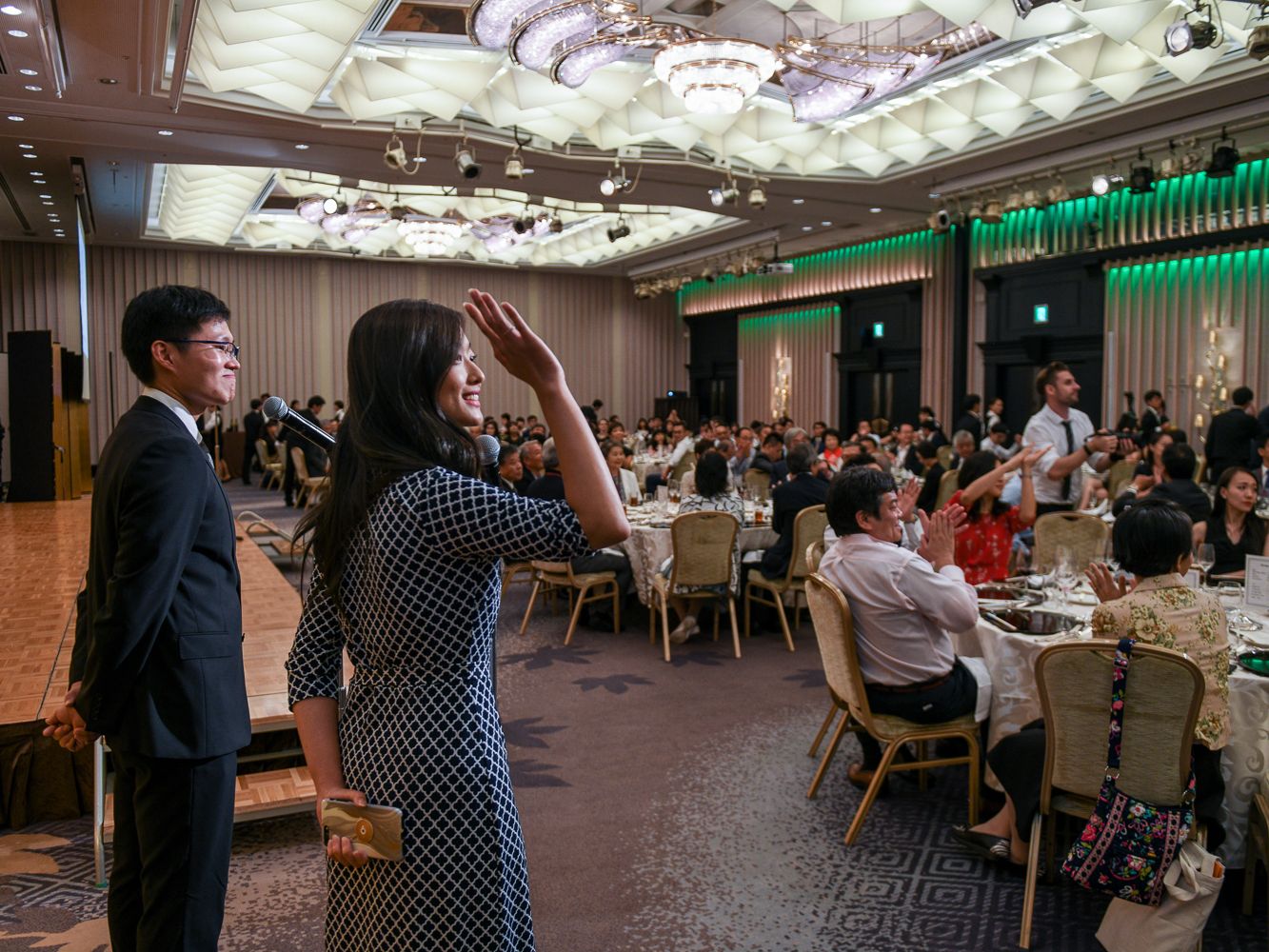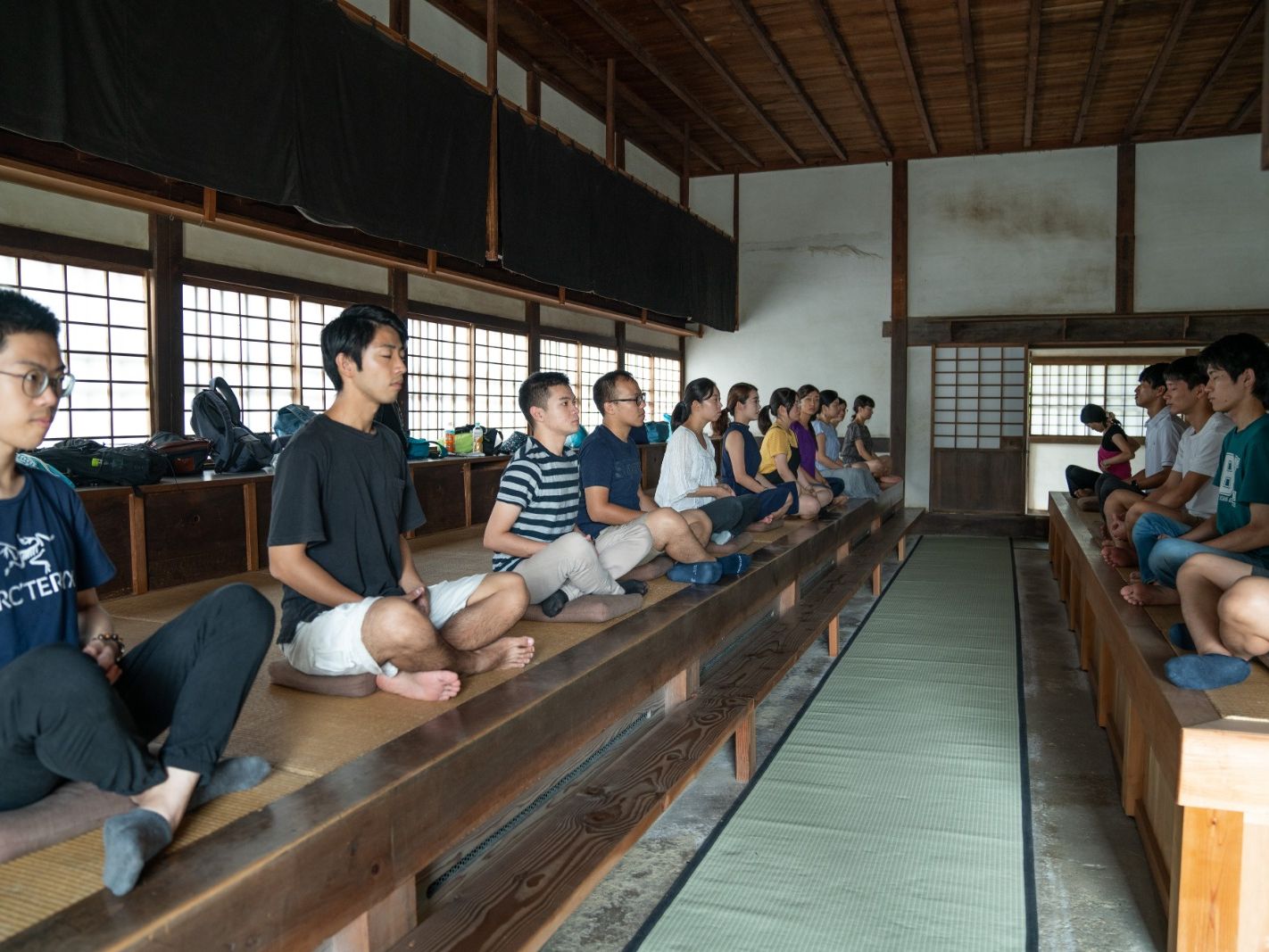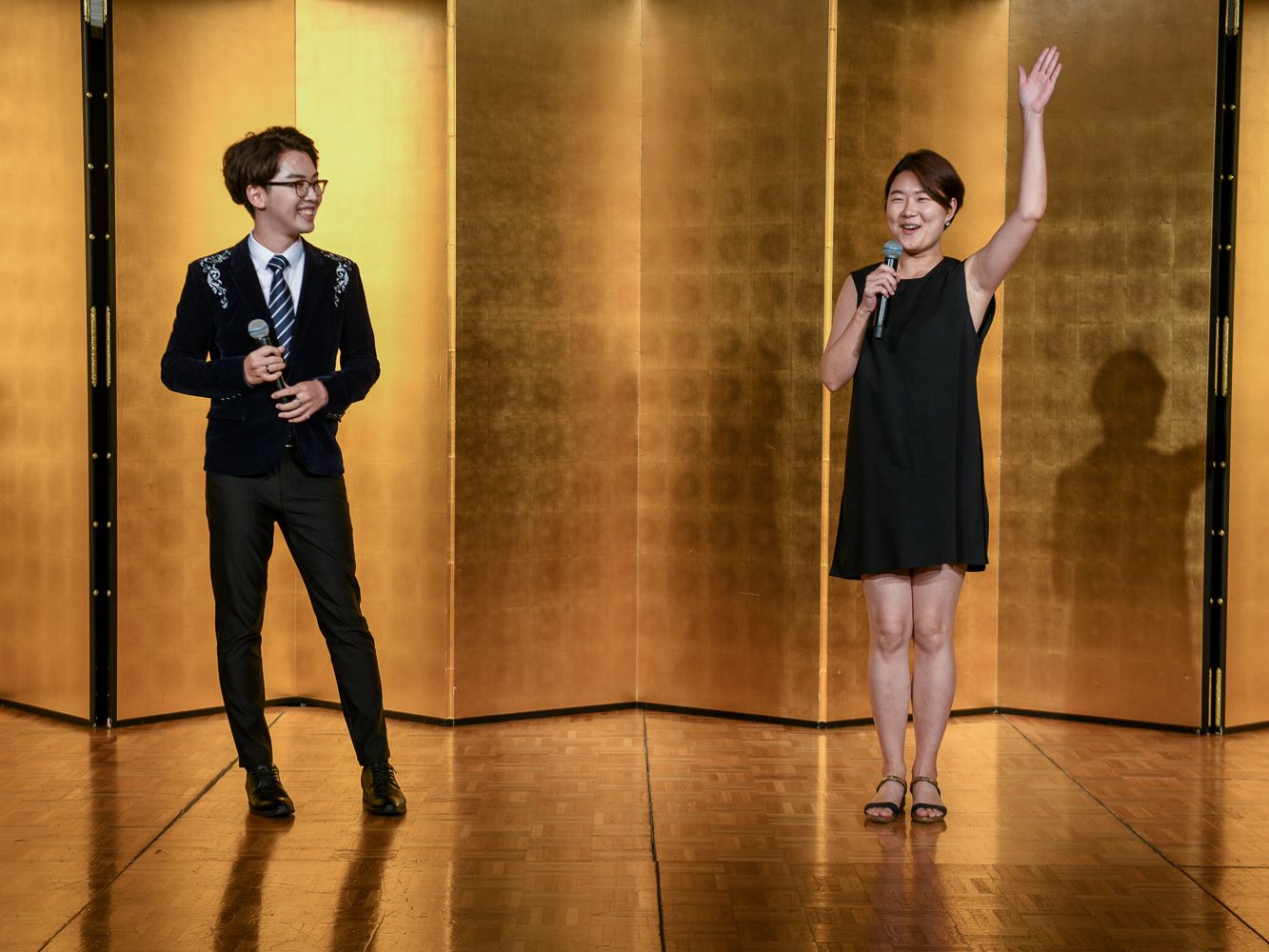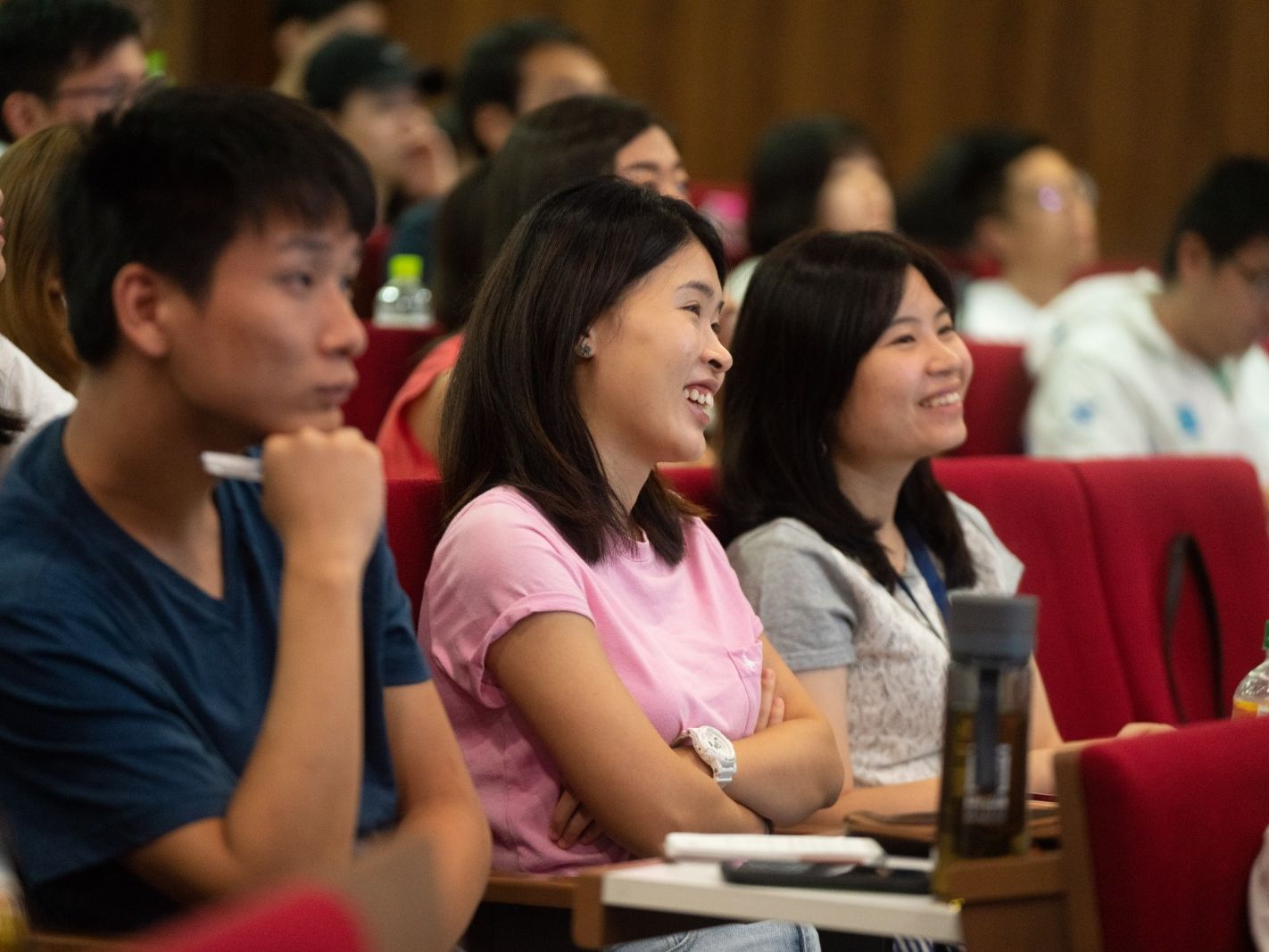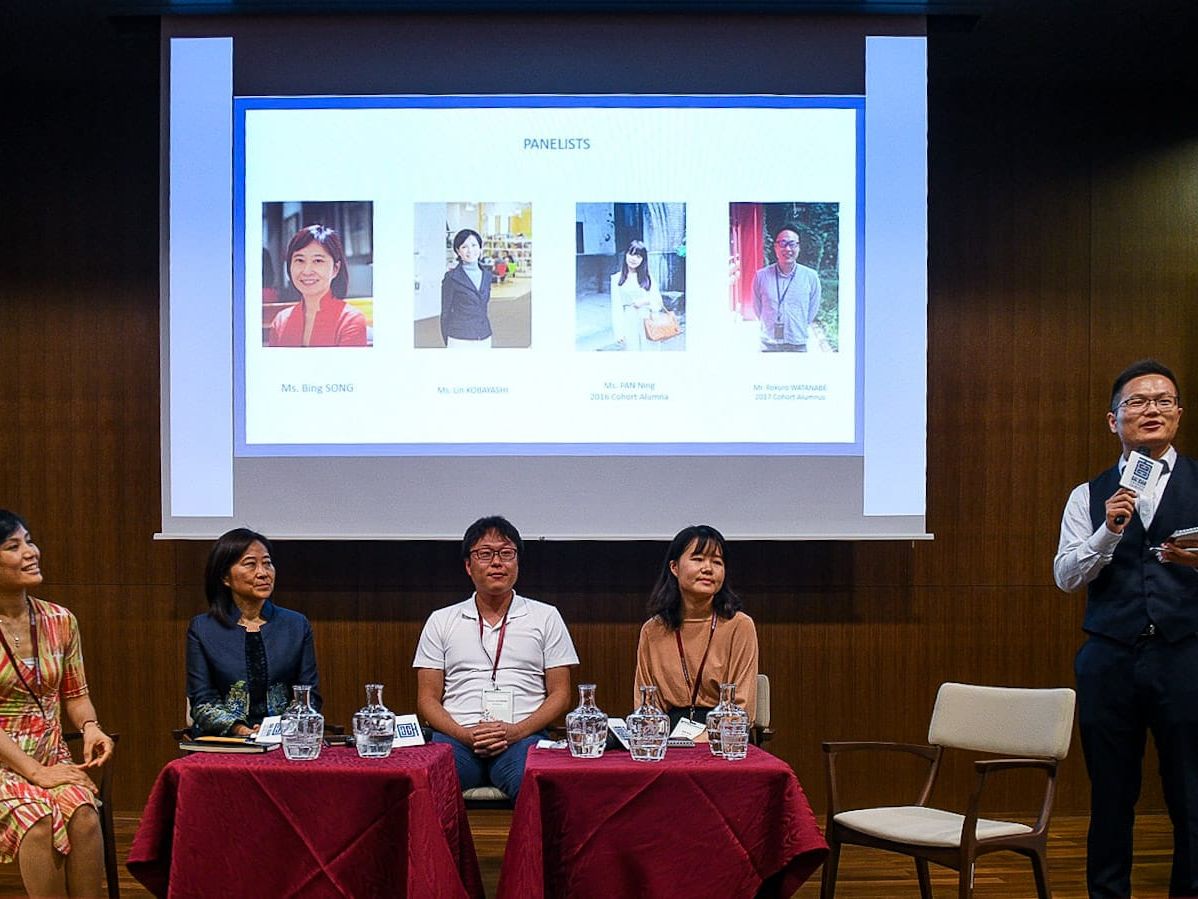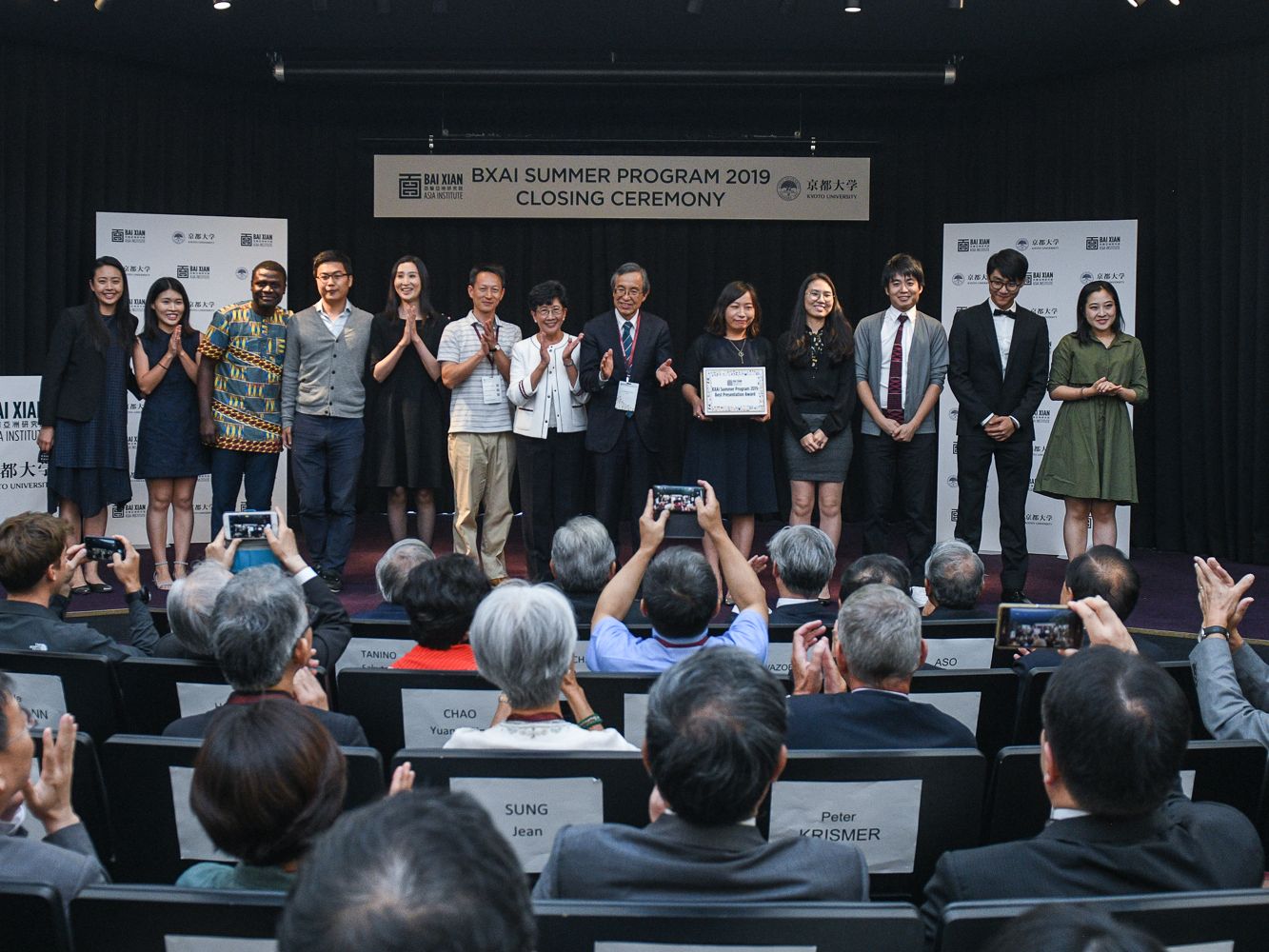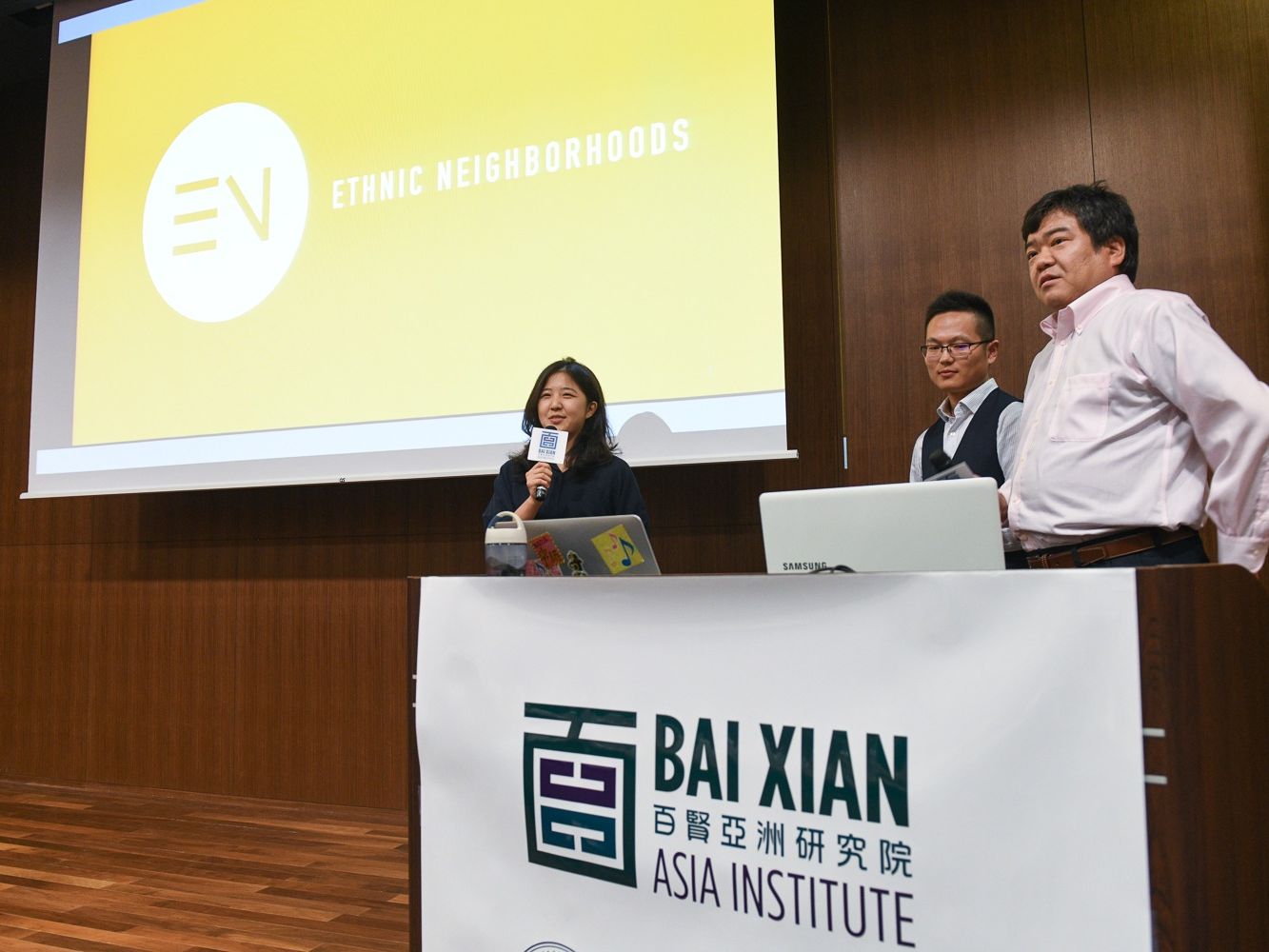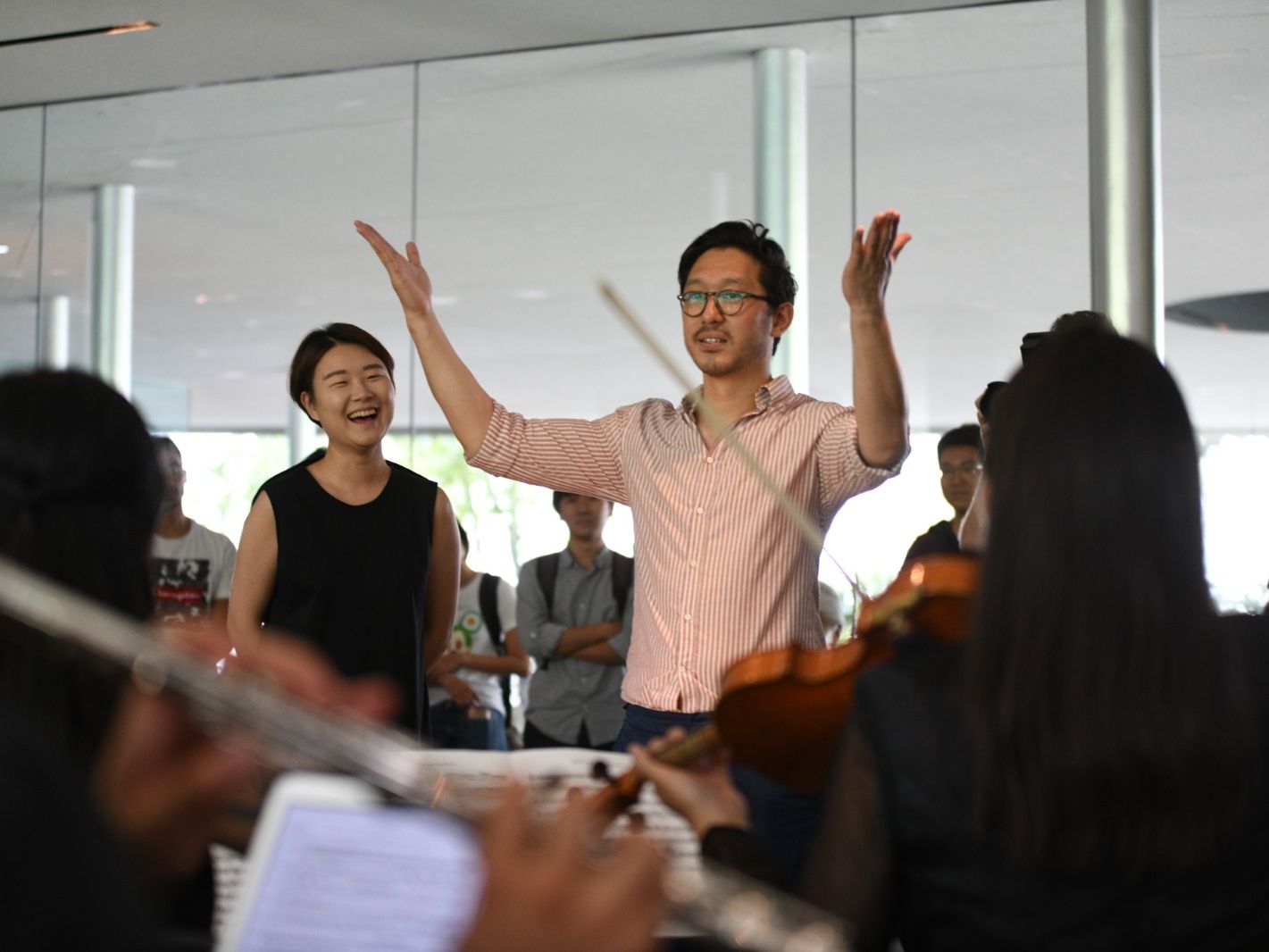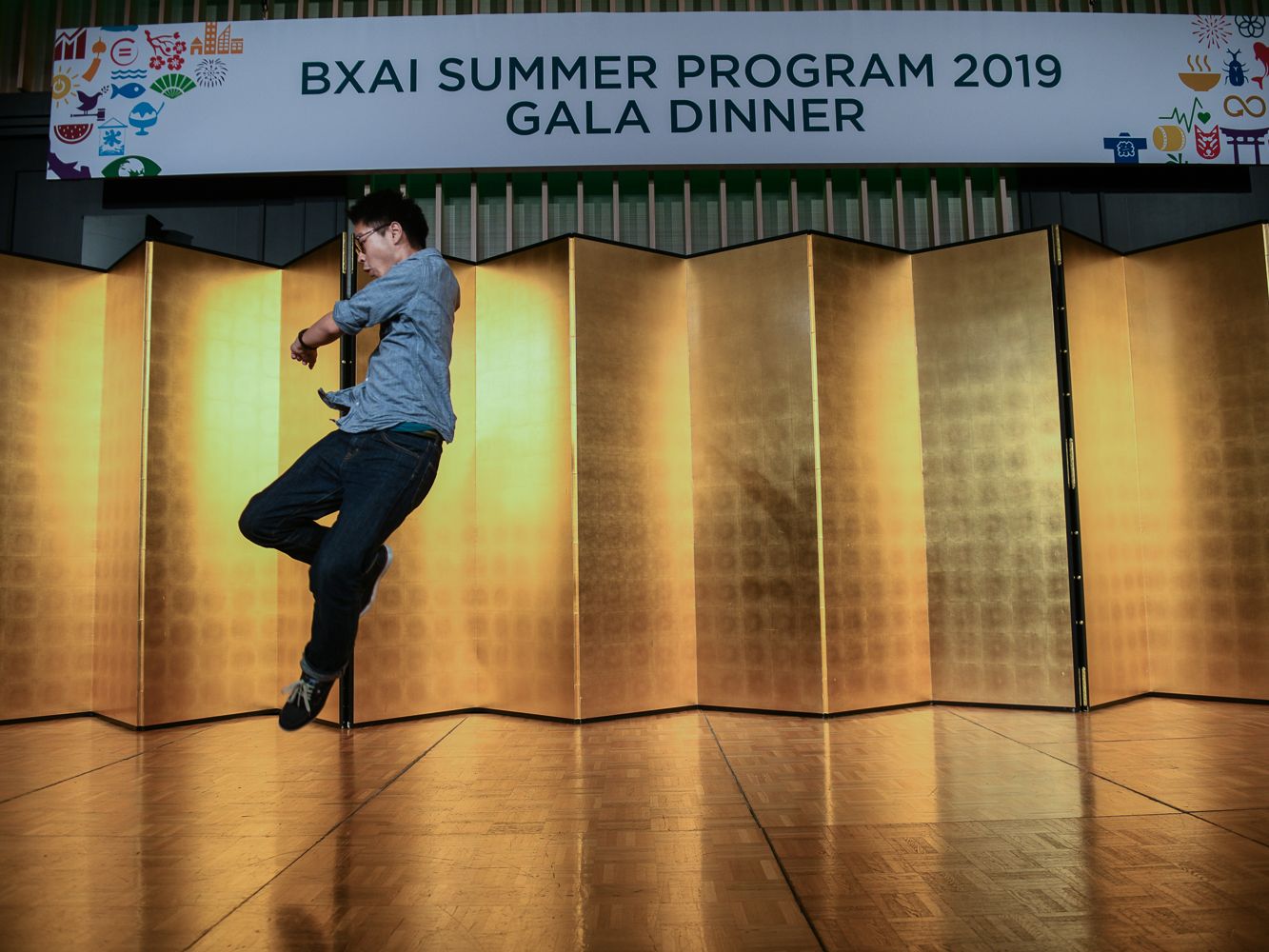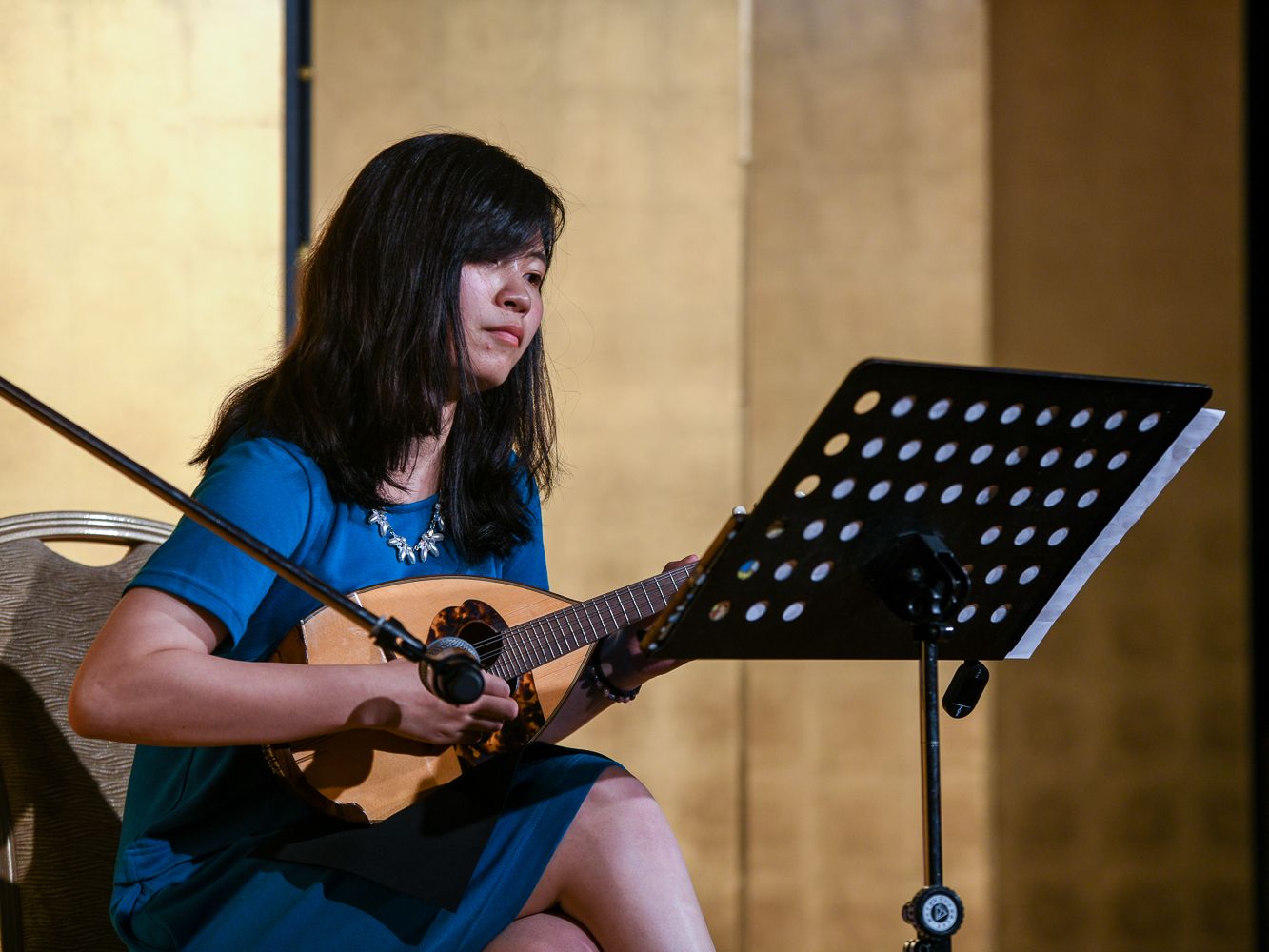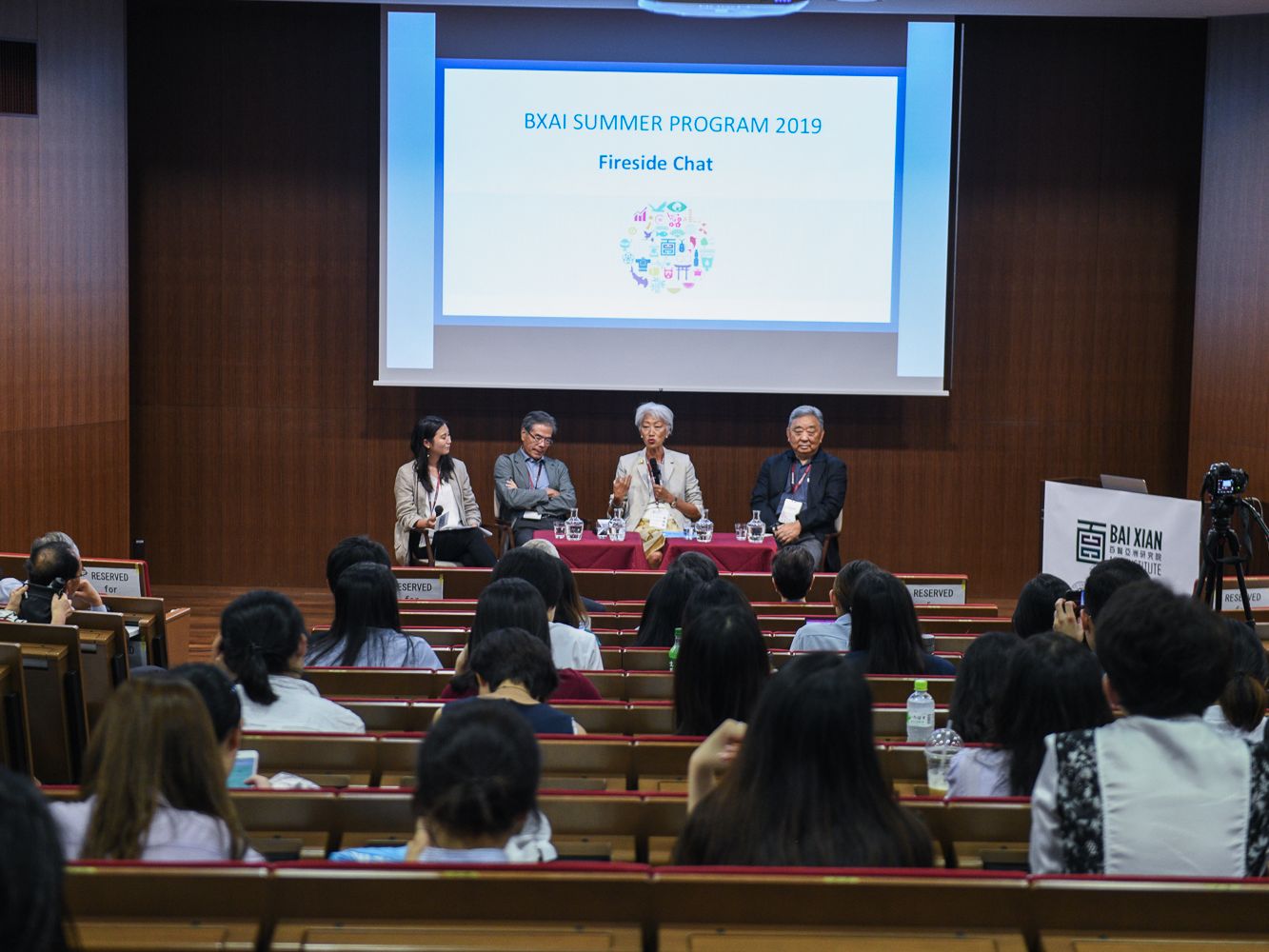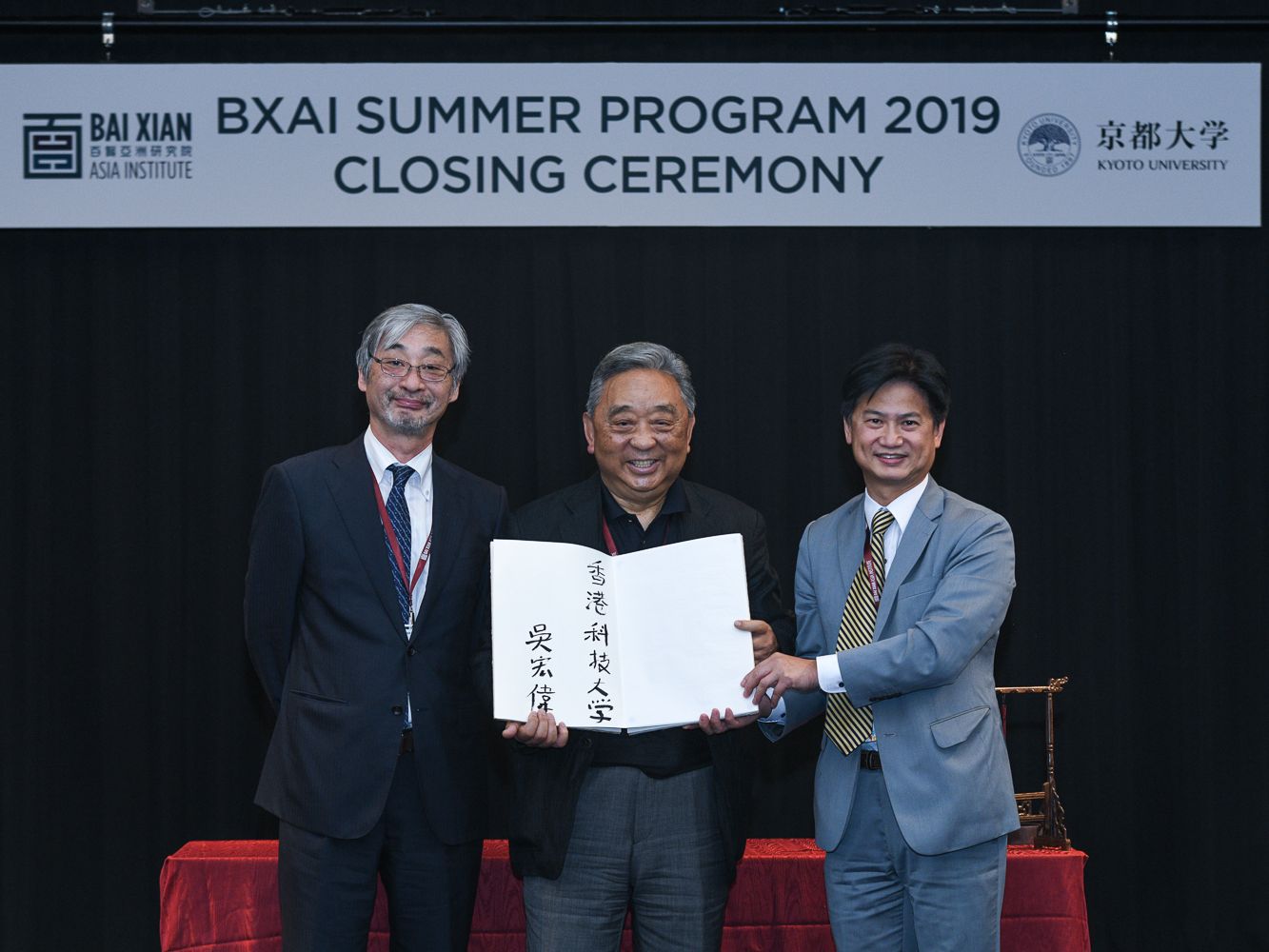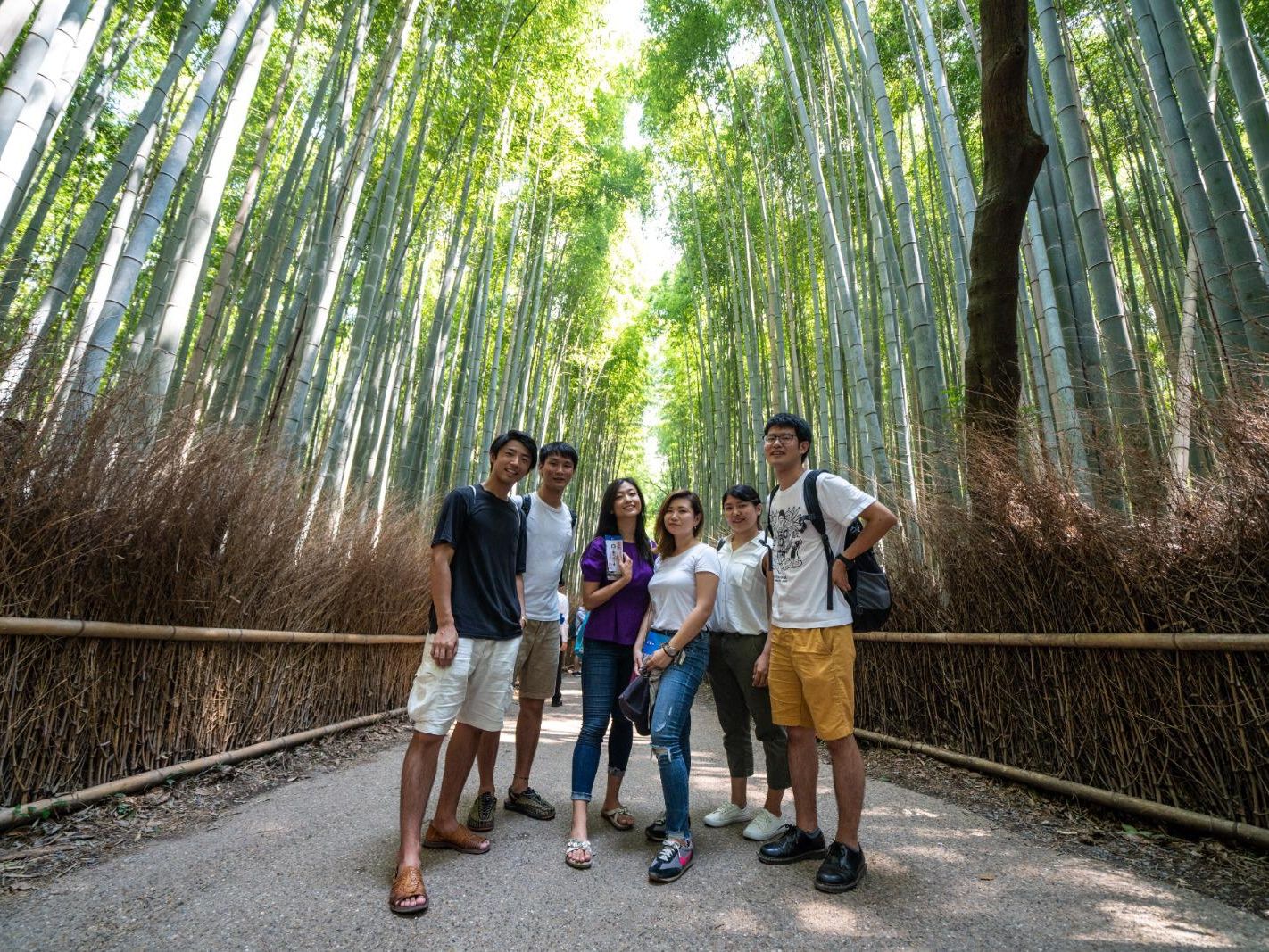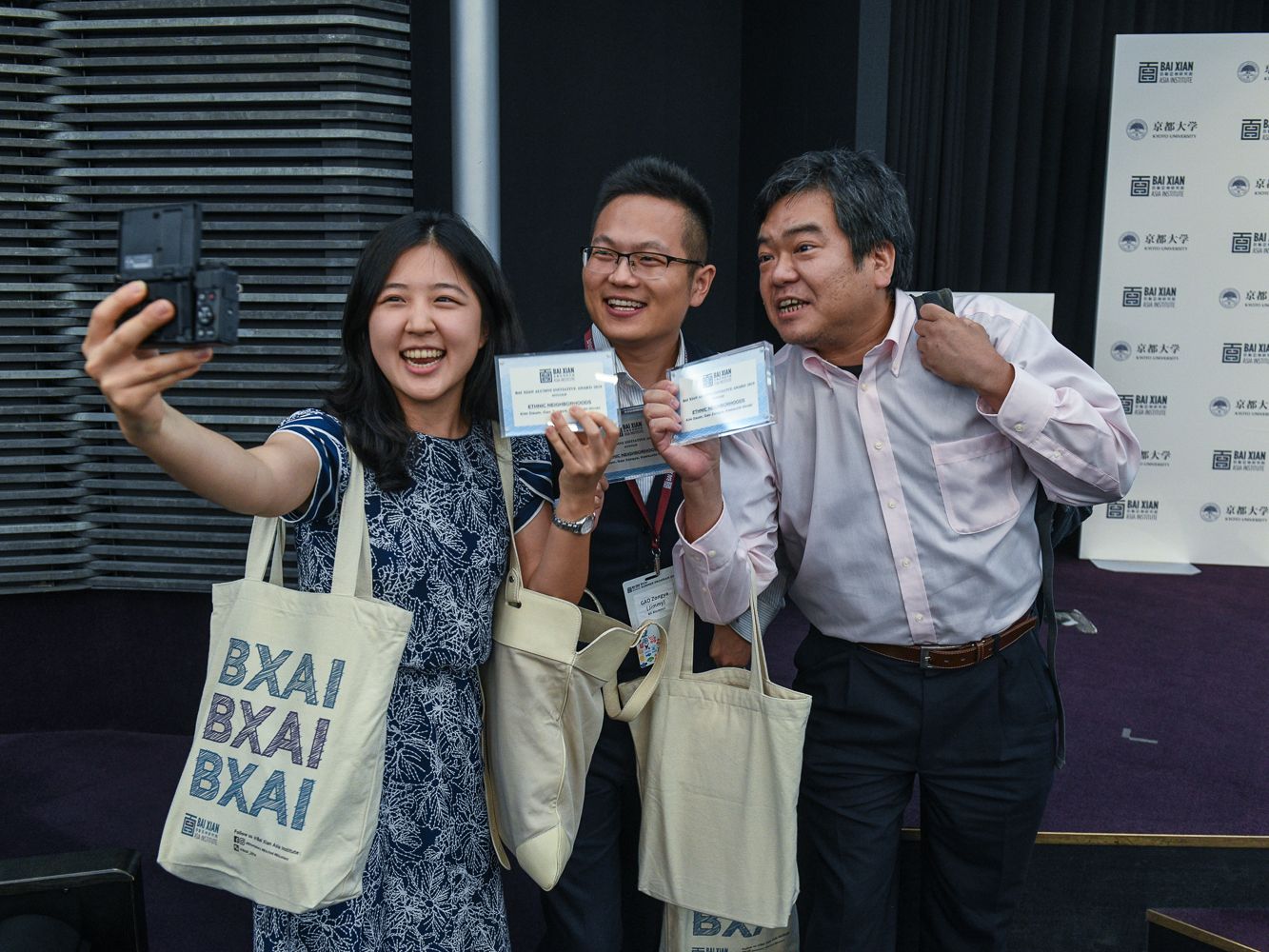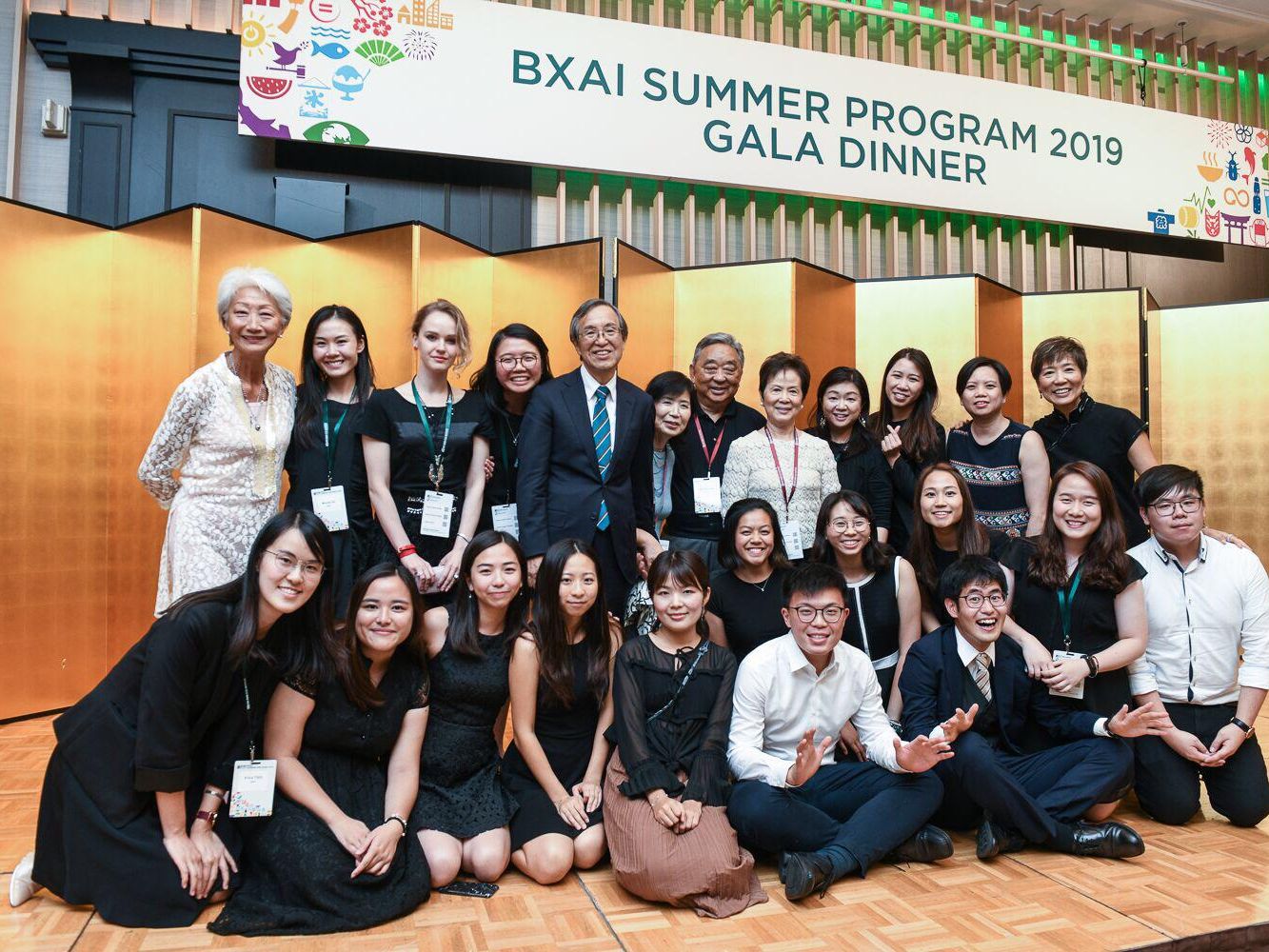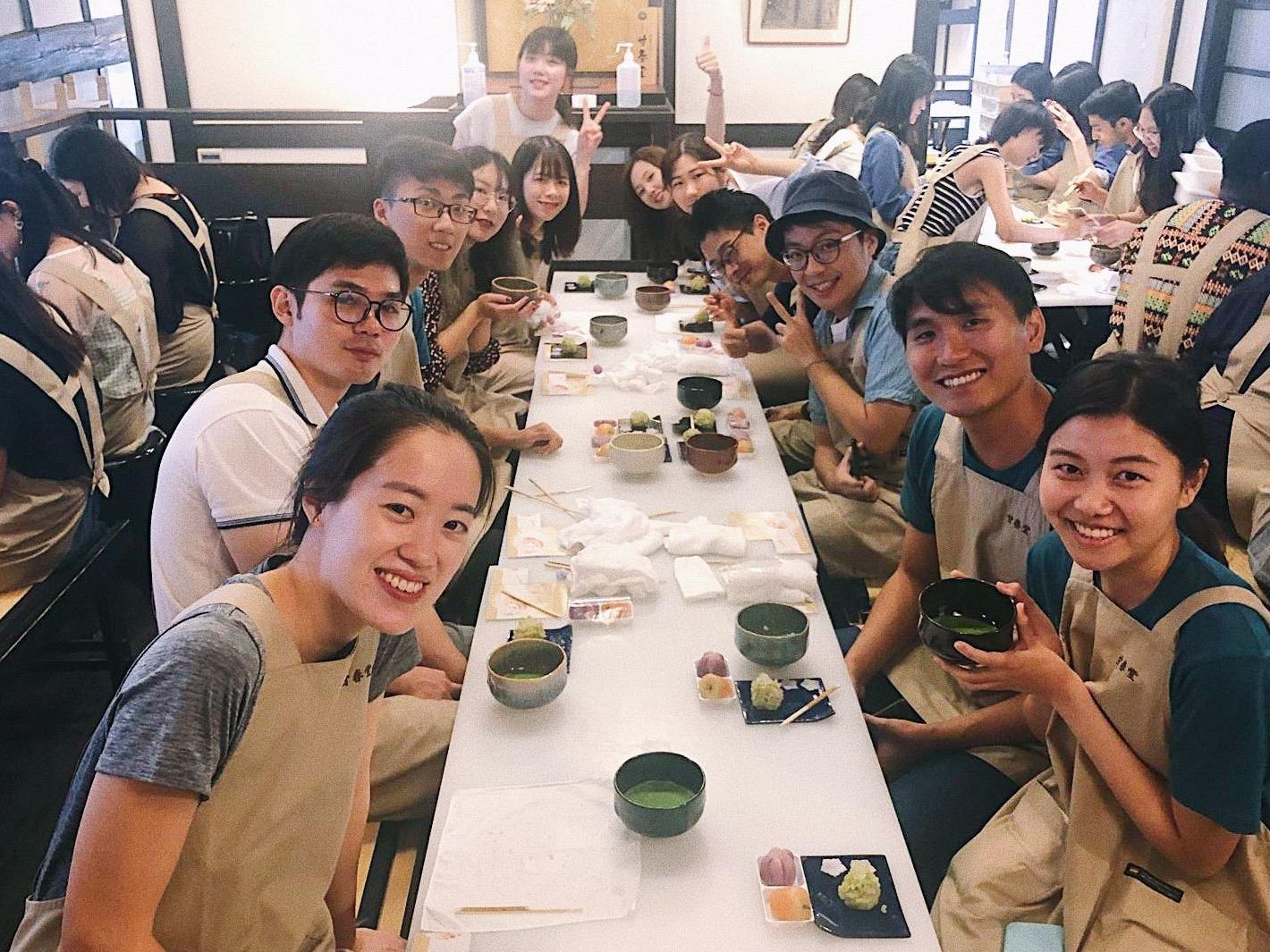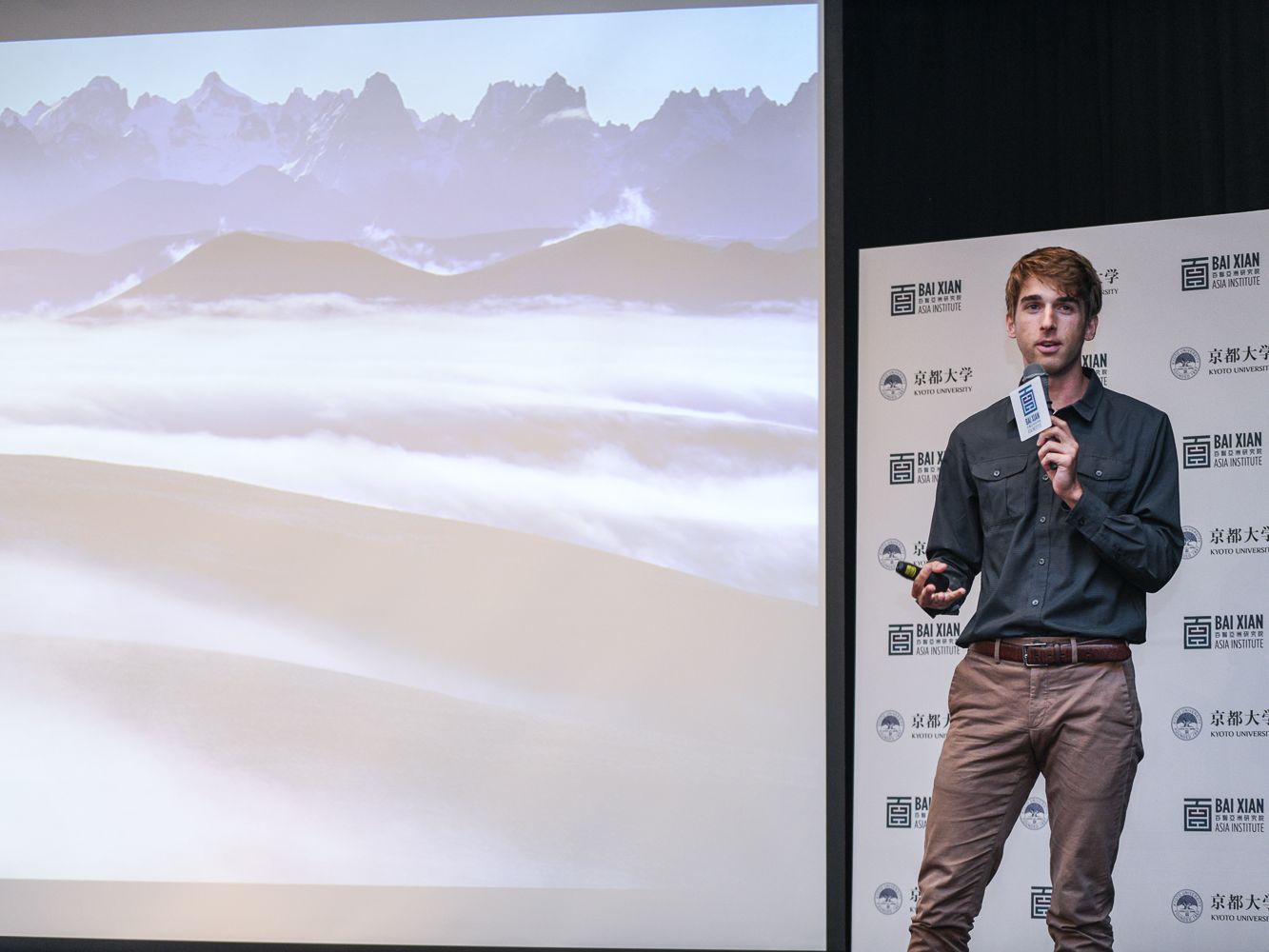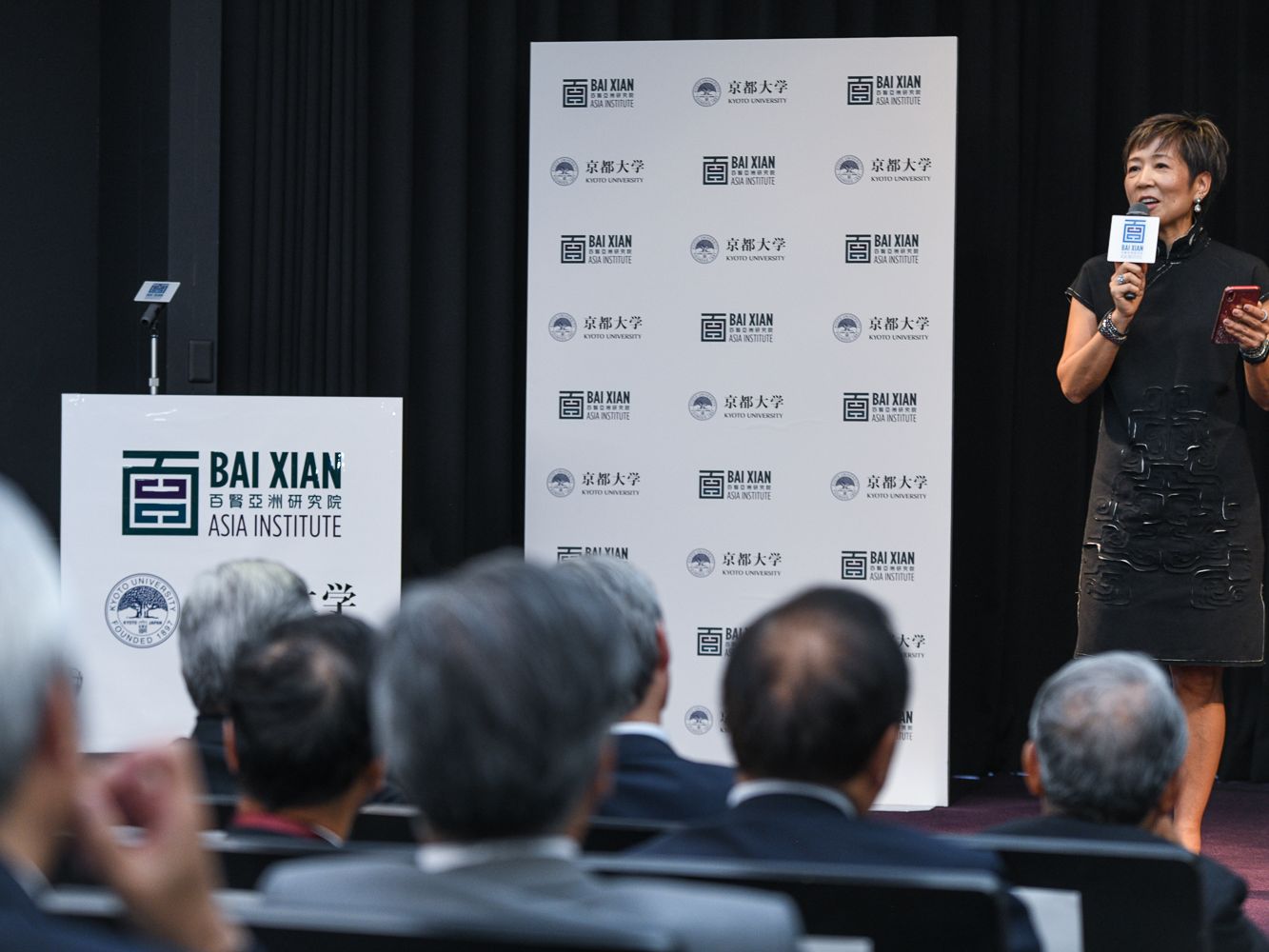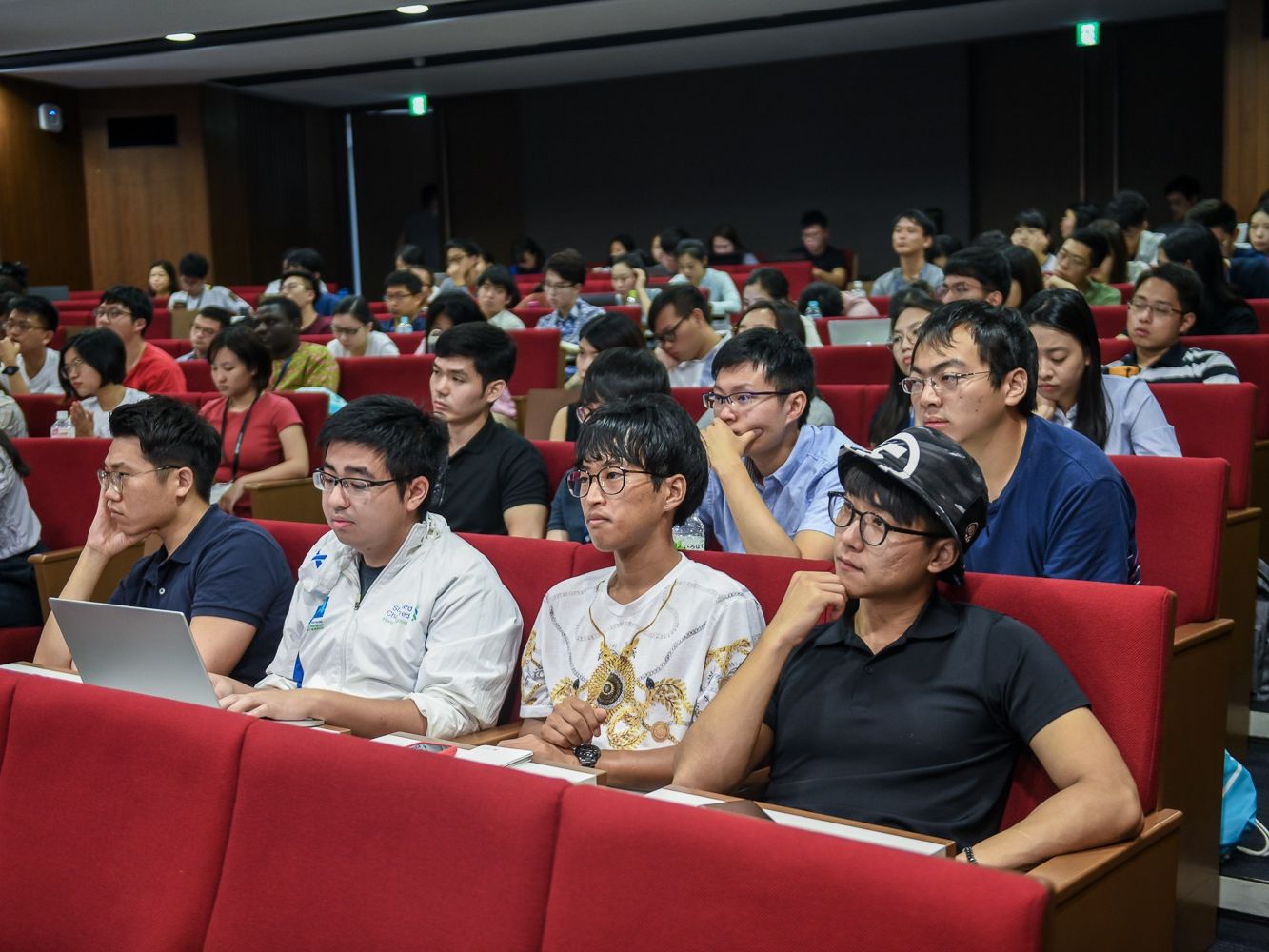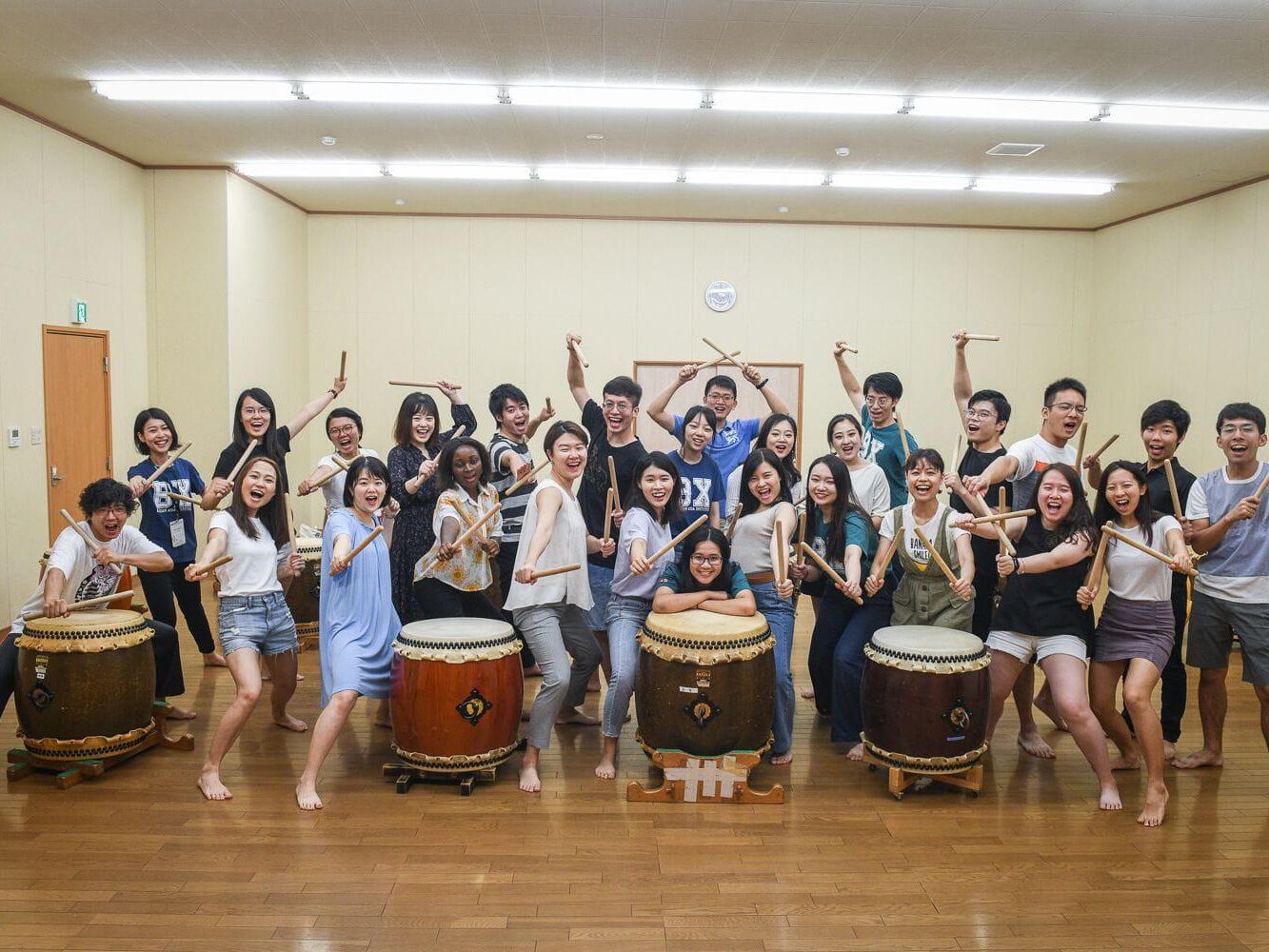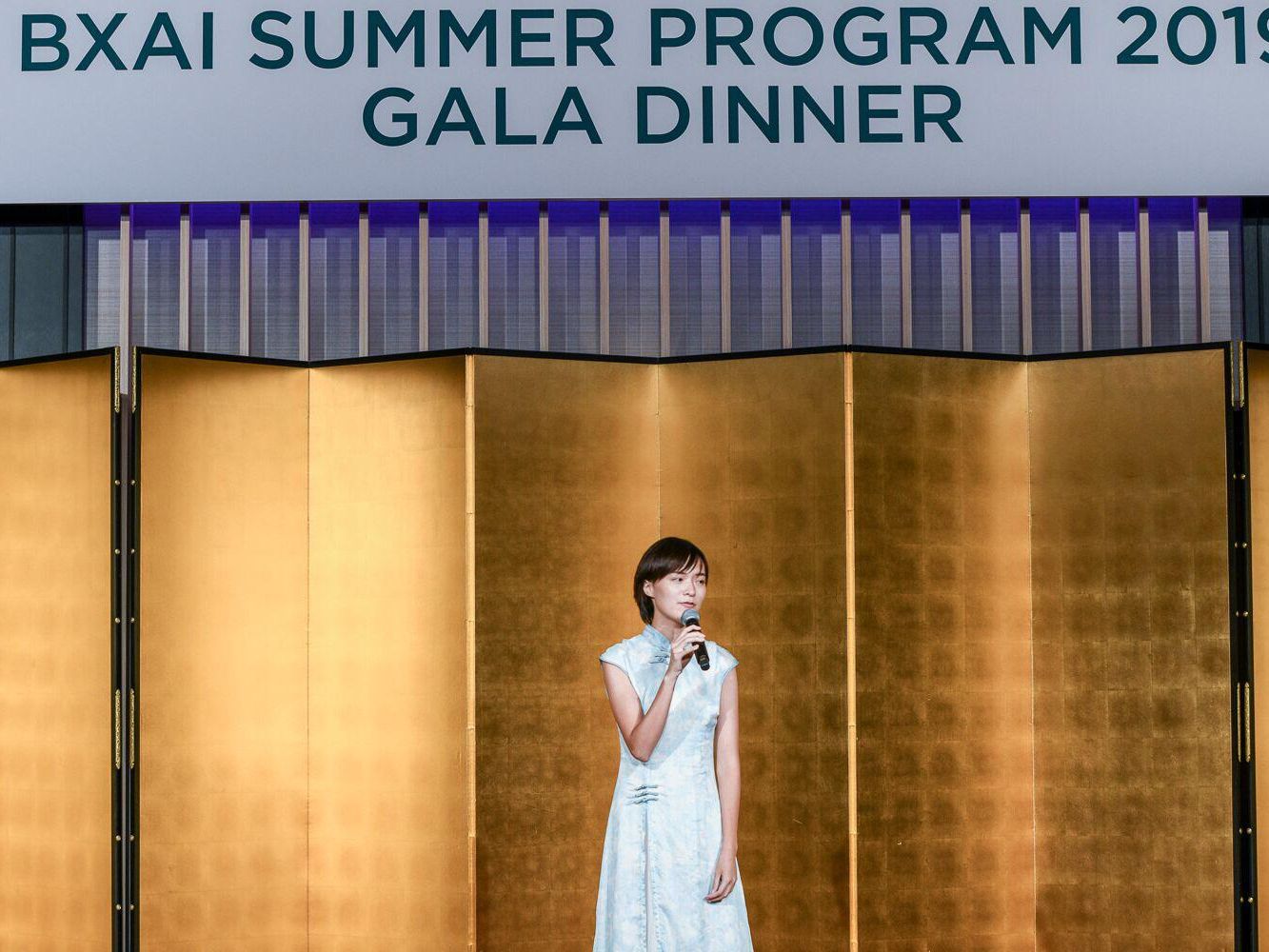BXAI Takes Kyoto!
After spending over five hours on a bus travelling back to Kyoto from Gifu, we all breathed a sigh of relief as we pulled up at our hotel on Wednesday night, ready for a good night’s rest ahead of our final Summer Program week.
Our time at Kyoto University kicked off with a series of academic sessions that invited us to dive deeper into the theme of “Harmonious Coexistence” by addressing key issues pertaining to the future with 2050 as a reference point.
A Deeper Look into “Harmonious Coexistence”
At the “Sustainable Food System: Smart Agriculture and Food Security” session, led by Dr. Eiji Morimoto of Tottori University and Prof. Qing Ping of Huazhong Agricultural University, we examined how new technologies, strong national governance, and cross-country collaboration can solve the trade-off problem between food production and environmental conservation, a growing issue resulting from the world’s increasing demand for food and energy. “Evolution does not go backwards,” explained Dr. Morimoto, who emphasized the importance of bridging the gap between traditional farming and scientific research to stabilize food security for future generations.
Our second session, “Coexistence for the Future: Urban and Rural, Humans and AI,” brought us face-to-face with one of today’s most pressing concerns – how artificial intelligence (AI) and urbanization will impact human society in the future. Dr. Zhao Liang from Kyoto University’s Graduate School of Advanced Integrated Studies in Human Survivability shared about his research on AI, Artificial Wisdom, and optimization theory, while Prof. Kim Chul-Kyoo from the Department of Sociology at Korea University addressed the urbanization trend from the perspective of the agro-food distribution system and food politics, encouraging students to be part of the narrative by saying, “What and how you eat can change the world – individual behavior can be an important form of sociopolitical action.”
The last academic session, titled “Innovation and Long-Standing Business: Kyoto’s Long-Standing Companies”, featured industry leaders who spoke about the coexistence of tradition and innovation in business. Mr. Tetsuya Shiokawa, Executive Director of the Xerox Corporation, shared his “five discovery skills for innovation: observing, questioning, associating, networking, and experimenting” and encouraged us to apply these to everything we do in the future. Dr. Narimasa Makino, CEO of Makers Boot Camp, spoke about his work supporting startups in Kyoto and the importance of design in manufacturing. The session concluded with a panel discussion, with lecturers and discussants sharing stories about their careers, personal development, and challenges they have faced. “Failure does not stop one from getting what they want, but helps us learn more about ourselves,” said Mr. Shiokawa.
Complementing the academic sessions were illuminating talks on social and cultural topics, including “The Past as Future in Japanese Contemporary Art” by Mr. John Carpenter, a curator for the Department of Asian Art at the Metropolitan Museum of Art, as well as “The Power of the Soft for the Generation Z of East Asia” by Prof. May-Yi Shaw, Assistant Professor of Humanities Education at The Hong Kong University of Science and Technology. From exploring how the past influences modern (and future) art to examining how our generation can use soft power to make a positive impact for the future, we thoroughly enjoyed hearing from so many leaders and experts and being challenged to consider issues beyond our fields of study.
Art and Culture in Kyoto
To mark the end of the academic portion of the Summer Program, we were treated to a half day of art and culture experiences, where we learned a bit more about the history and traditions of our host country through fun, hands-on activities. Some of us took part in an energetic taiko drum class while others chose the more peaceful route with an introduction to zazen, a meditative discipline practiced by Zen Buddhists. A third group opted for Kyo-wagashi dessert-making, where they learned how to create traditional Kyoto-style Japanese sweets that please the eyes and delight the taste buds.
Pitches, Panels, and Presentations
The last leg of the Summer Program was a whirlwind of activity. In between time slots dedicated to final presentation preparations, we were invited to attend the Alumni Initiative Award (AIA) pitch session, a career panel discussion, and a fireside chat with members of BXAI’s leadership. At the AIA pitch session, we had an opportunity to observe a real-life, social startup pitch as two finalist teams presented their socially responsible action plans in a bid to win a USD 2,500 cash prize and up to USD 15,000 in seed funding. We were incredibly impressed and inspired by the innovative ideas put forth by each team: Ethnic Neighborhoods spoke about its desire to foster cross-cultural understanding by highlighting immigrant community stories through creative video content, while the Tara Jaan Project presented its plan to revitalize the community of Bodh Gaya in India through permaculture and education initiatives. We found out later at the Closing Ceremony that Ethnic Neighborhoods, comprised of Bai Xian Alumni Daum Kim and Jimmy Gao, as well as team member Hiroki Kawauchi, was named the winner of the 2019 AIA.
The career panel discussion was something many of us looked forward to and we relished the opportunity to hear from both industry leaders and BX Alumni. Moderated by BX Alumnus, Jimmy Gao, the discussion featured panelists Ms. Bing Song, Vice President of the Berggruen Institute; Ms. Lin Kobayashi, co-founder and Chair of the Board at UWC ISAK Japan; Ms. Pan Ning, BX Alumna and analyst of RENOVA, Inc.; and Mr. Rokuro Watanabe, BX Alumnus and Senior Director of Digital Advertisement Consortium; who shared openly about their own career journeys and offered insights on various career paths and personal development. “Build your core competency and embrace change,” advised Ms. Song, while Ms. Lin emphasized the importance of problem-solving, diversity, and humility. At the fireside chat, we heard from a few of BXAI’s leading members including Mr. Ronald Chao, Honorary Chairman of BXAI; Prof. Takanori Kitamura, Executive Committee Member of BXAI; and Ms. Jean Sung, Board and Executive Committee Member of BXAI and Head of The Philanthropy Centre, Asia at J.P. Morgan Private Bank; who discussed their views on leadership, education, and identity, and engaged directly with us through a thought-provoking Q&A session.
On the second to last day of the Summer Program, we were excited to deliver our final group presentations, an exercise that required us to consider our takeaways from the Summer Program as a whole as well as put into practice our teamwork and public speaking skills. Addressing the assigned topic: “Transforming knowledge into an action plan: how can you contribute to a better Asia?”, each group presented innovative solutions to a wide variety of issues ranging from food waste and pollution to cultural bias and discrimination. One group created a video, which they named “BBC (Beyond Bias Channel)”, that explored the subject of mutual understanding between people from different countries, while another suggested the use of social media to ease hostility amongst Generation Z individuals. The Best Presentation Award was given to Group A, which proposed tackling the issue of food waste in convenience stores with a mobile application that connects the government, convenience stores, and underserved communities or families in need of food.
Goodbye but not Farewell
The final day of the Summer Program kicked off with a morning keynote lecture delivered by returning speaker, Mr. Jason Lai. Using the act of conducting as a metaphor for leadership, Mr. Lai spoke about balance, teamwork, personal integrity, and body language, and even invited a few of us to try our hand at conducting an actual orchestra to experience the importance of communication in leadership. Recalling his first lecture at the Opening Session two weeks ago, Mr. Lai brought us full circle back to his initial challenge to recognize our “lobster moments,” encouraging us to take what we have learned and apply it to our lives going forward.
That afternoon, we attended the Closing Ceremony, where awards were presented and we received our Summer Program certificates. The keynote speech was given by Mr. Kyle Obermann, a China-based environmental and adventure photographer, who shared about his decision to pursue a career that aligns with his passion, what he has learned along the way, and the power of collaboration. The ceremony drew to a close with encouraging words from Professor Kitamura. “Remember what you have experienced and what you have learned during this Summer Program – it will give you power to play the role of a bridge,” he advised. “Of course, this is not an easy job. But do not think that issues are too big, and do not underestimate what you can achieve. I trust that you will be a great game-changer,” he said, commissioning us to go out into the world with the shared objective of building a peaceful and harmonious Asia.
The gala dinner that evening was a bittersweet occasion for all of us as we gathered to mark the official end of the Summer Program, reminisce about special moments, and celebrate our friendships with one another. The amazing talents of our cohort were on full display, with Hara Yuki performing a Hungarian dance, Ayane Kanazawa playing the mandolin, and vocal performances by Amane Okina, William Xia, and Seo Seung Im. Some scholars and student advisors took the chance to approach the stage and share about their unforgettable moments and reflections from the Summer Program. Amidst the mingling, photo-taking, and dancing, Ms. Ronna Chao, BXAI’s CEO, wrapped up the evening with words of encouragement for all of us. “This is an opportunity for new beginnings,” she said, commissioning us to go out into the world as future leaders of Asia and to make a difference by building bridges across cultures.
